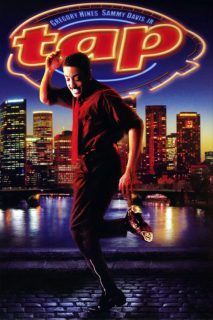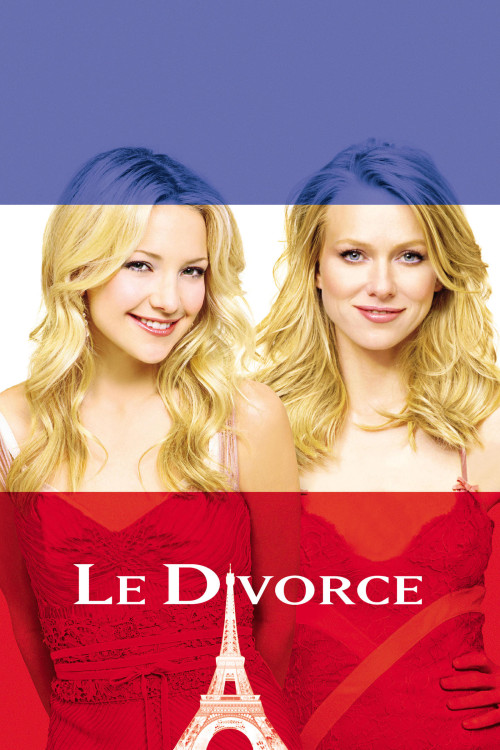
- Year: 2003
- Released: 29 Aug 2003
- Country: United States
- Adwords: 2 wins
- IMDb: https://www.imdb.com/title/tt0306734/
- Rotten Tomatoes: https://www.rottentomatoes.com/m/the_divorce
- Metacritics:
- Available in: 720p, 1080p,
- Language: English, French
- MPA Rating: PG-13
- Genre: Comedy, Drama, Romance
- Runtime: 117 min
- Writer: Diane Johnson, Ruth Prawer Jhabvala, James Ivory
- Director: James Ivory
- Cast: Kate Hudson, Naomi Watts, Stockard Channing
- Keywords: france, infidelity, brother-in-law, artist, scandal, tourist,
 | 4.9/10 |
 | 51/100 |
The Divorce Storyline
The differences in legalities and cultural mores of French and Americans regarding sex, love, marriage, religion, and family bonds are presented through the interactions of two families related by marriage. American Isabel Walker (Kate Hudson) heads to Paris to visit her half-sister, poet Roxeanne de Persand (Naomi Watts), who is pregnant with her second child. Isabel arrives to find that Roxy’s French husband, Charles-Henri de Persand (Melvil Poupaud), has just left her, and the sisters later learn that he has fallen in love with another woman, who is married. Roxy and Charles-Henri deal with their break-up; Roxy doesn’t want it but must face its legal consequences, including determining the ownership of a possibly-valuable French painting that has been casually in the Walker family for years, but which Roxy has had in her possession since she got married. Meanwhile, Isabel begins to explore all that France offers, including embarking on sexual relationships with two men. One is Charles-Henri’s older maternal uncle, the wealthy and well-appointed Edgar Cosset (Thierry Lhermitte), who is already married and who is using the same playbook on her that he has on countless women before her. As groups and individuals within the two families disagree and argue about certain issues they are facing, it does not necessarily affect other issues and relationships between the two families based on their priorities and those cultural and legal standards.—Huggo
The Divorce Photos
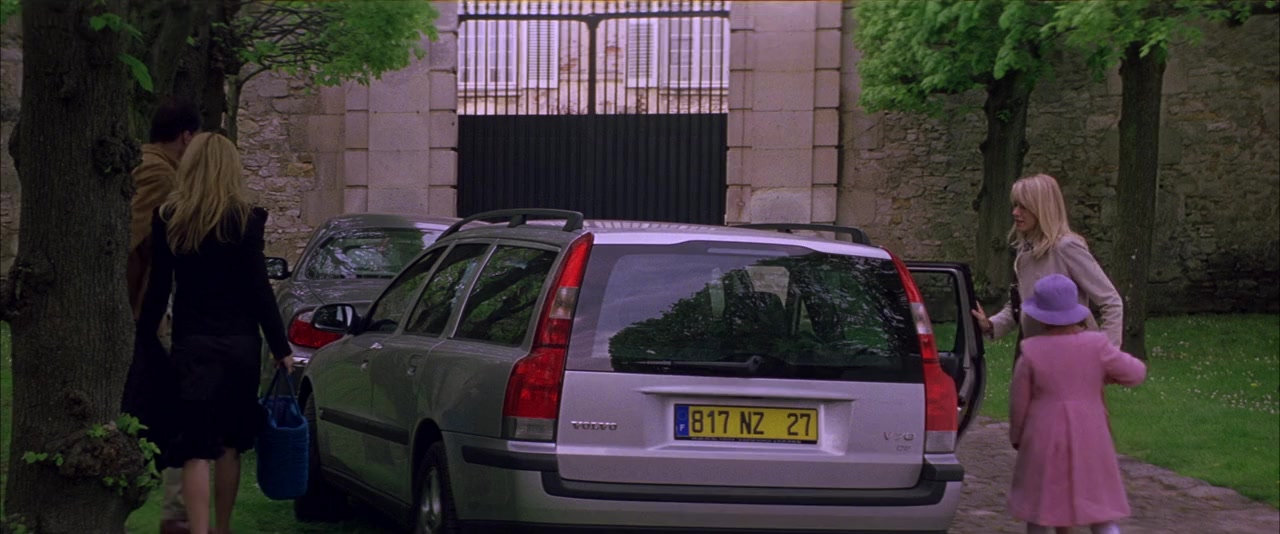
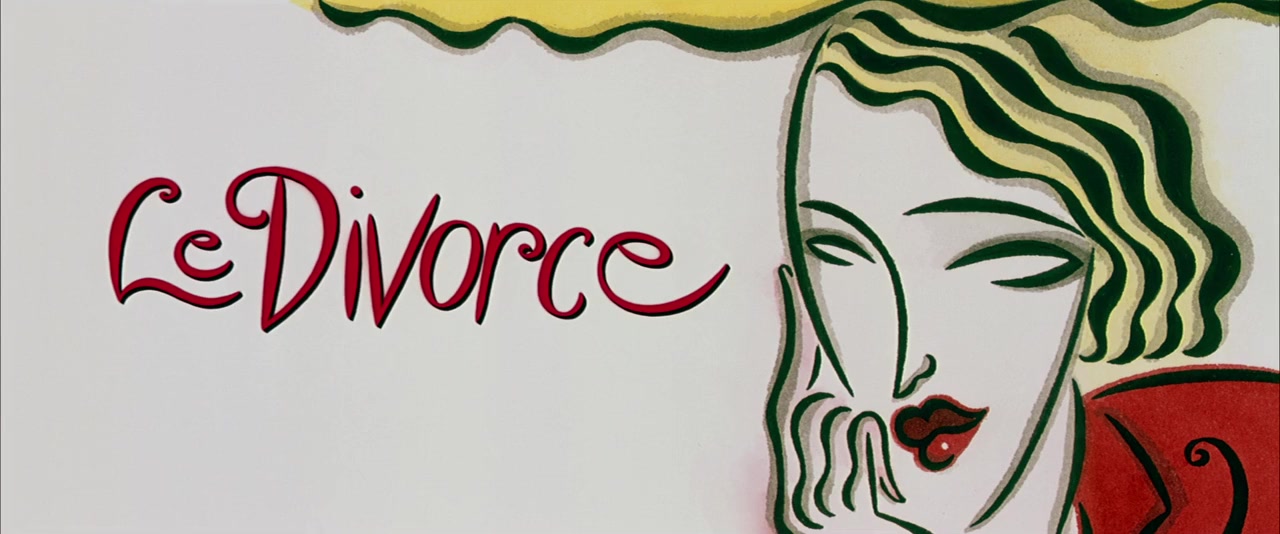
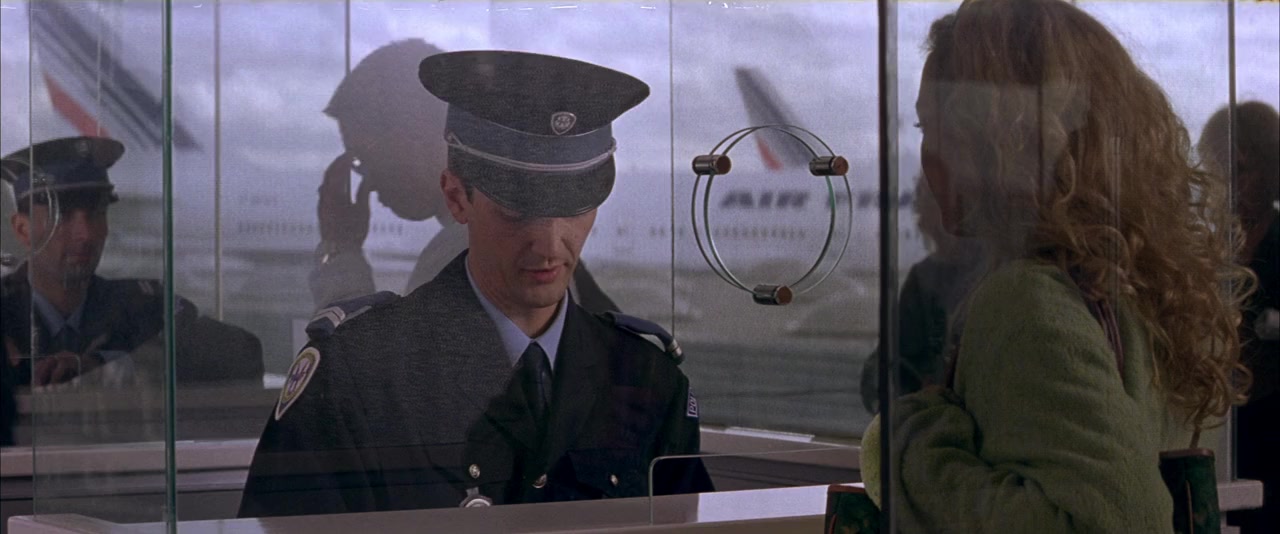
The Divorce Torrents Download
| 720p | web | 1.05 GB | magnet:?xt=urn:btih:00C4D6CC496380D22938D53E9071FE6380141755 | |
| 1080p | web | 2.16 GB | magnet:?xt=urn:btih:805B92C0169659BFD711282B4A210892C2ACE136 |
The Divorce Subtitles Download
The Divorce Movie Reviews
A genuine Georges De la Tour painting!
It’s amusing to read some of the comments in this page of IMDb. Most postings place the blame for what they perceive as the failure of this picture on James Ivory, Ismael Merchant and Ruth Prawer Jhabvala, the successful creative team of some of the best movies of recent years. In fact, the sin they appear to have committed was to adapt the Diane Johnson’s novel about the contrasts she has always written about between two cultures that should be more similar: the French and American, yet, as we read in the book, and now watched in the film, they are not as close as one would imagine.
First, the French one sees portrayed in the film belong to the high classes that are imbued in their traditions, savoir faire, their sense of style and being B.C.B.G., something the Americans, being somehow a new society without those traditions cannot comprehend. Money is a taboo subject to be spoken at all by the wealthy French, whereas in America the flaunting of having made fortunes and having millions is an everyday subject for the higher ups.
Ms. Johnson, who has lived in France for quite some time, is an observant of that society. In her many books about life in that country, the study in the contrasts she sees, are at center stage and the mixing of Americans with the French bourgeoisie produces surprising results that make the reading of her novels more compelling for the joy they bring to her readers.
Isabel, the young American, arriving to stay with her sister Roxanne, takes easily to the new surroundings. In doing so, she completely disregards the established rules when she enters in a liaison with Marc-Henri, who sees the occasion as one for amusing himself for a while. Roxanne, on the other hand, soon discovers what she is against when her French husband decides to ask her for a divorce. Little has prepared her for the consequences that go with it and the archaic laws about a couple’s separation in that country, which benefits the husband while punishing the wife.
The other theme at the core of the story is a painting Roxanne has brought with her from San Diego. The possibility of it being a real Delacroix is now at the center of the divorce settlement. Where one can see it has nothing to do with the cheating husband, Suzanne, the mother-in-law deems otherwise because of the possible value the painting will fetch when it’s sold.
Naomi Watts makes another great contribution in her appearance as Roxanne. Kate Hudson is not in the same league, although her good looks and natural charm makes one care more for her Isabel. The delicious Leslie Caron plays Madame de Persand with great panache. Just watching her remarking about the granulated sugar Charlotte offers her to sweeten her tea is one of the delights of the film. Tierry Lhermitte is seen as the callous Edgar. Glenn Close plays Olivia Pace, a writer,who might be Diane Johnson’s alter ego in the story. Stephen Fry, Stockard Channing, Sam Waterston, and the rest of the French and American cast do a good job.
This film has a feeling of being more French than some French movies. The cinematography of Pierre Lhomme is wonderful as he takes his camera all over the city showing us what a treat it is to be in Paris, even for a visit. The other thing that comes across is the involvement of the late Ismail Marchant to the production. Mr. Merchant got great locales in where to film and had a great eye for the style of the pictures he was producing. His absence, alas, is sadly missed from the latest James Ivory project “The White Countess”.
In spite of not being up to some of his best movies, James Ivory still shows he has a keen eye for presenting the material on the screen.
Not THAT Bad!
The performances are terrific, Kate Hudson proves that she is the actress that Goldie Hawn never was, and it is always good to see Leslie Caron looking her age and looking great. Now, the matter of the plot has been raised and the consensus so far is that it is a bag of clichés dumped into a blender and then poured out on film.
True. But, the book was no great shakes either and the screenplay simply has not risen above its origins.
I enjoyed Le Divorce for its cynicism and its predictability, frankly. It is nice every now and then to see a movie that elicits a sour chuckle rather than a guffaw or a shriek, and this is one of them.
Quirky mess, but far from “the worst movie ever made.”
Le Divorce (2003) is not by any stretch a very good movie. But is it – as a stunning number of IMDb subscribers have dubbed it – “the worst movie ever made”? Very far from it I’d say, but then I’ve seen a ton of real clunkers in over five decades of obsessive movie viewing. While Le Divorce has more than its fair share of implausible and languorous moments, I nevertheless managed to stay reasonably awake and entertained throughout.
The heavily negative response the film received from American reviewers and on this film site has perhaps less to do with the film’s merits (or lack thereof) than with the misleading way it was marketed and to the casting of Kate Hudson in its lead role. Though limited in acting range, Ms. Hudson is blessed with her mother Goldie’s winning smile and a screen-persona tailor-made for light comedy. In Le Divorce she seems to have stumbled into an alternate universe, and no doubt her many fans felt the same way upon viewing the film.
However it might be classified (and I’m not sure how that might be), Le Divorce is clearly NOT a romantic comedy geared to the tastes of teens and twenty-somethings. It’s probably better not to think of it as a romantic comedy at all – at least not in the usual American sense of a boy-meets-girl, boy-loses-girl, boy-gets girl plot with a heavy admixture of screwball humor to keep the patrons amused. Quite to the contrary, Le Divorce includes scenes of attempted suicide, stalking, hostage taking, and murder. And these are not handled with humor – screwball, black, or any other form. They are staged with at times all too much seriousness.
Also, “the boy” in the romantic formula turns out to be a notorious 55 year old French sophisticate/philanderer named Edgar Cosset (Thierry Lhermitte) whose M.O. for the conduct of extra-marital affairs includes the gift of an expensive Hermes “Kelly bag” at the start of a relationship and a stylish scarf at its end. One of the running jokes in Le Divorce (admittedly not a belly-whopper) is that every woman in Paris seems to recognize Edgar’s seduction methods and instruments except his latest flame, a visiting American ingénue, Isabel Walker (Hudson). Nor does the Edgar-Isabel plot have a happy ending in the manner of Gigi, a film referenced by Le Divorce through the casting of Leslie Caron in a well-done supporting role.
There is no reconciliation to be found in Le Divorce between American post-feminist romantic idealism and French double-standard patriarchy and sexual cynicism. These are two worlds that do not comprehend each other, and never the twain shall meet- well, hardly ever. The film’s other romantic plot involving Isabel’s older sister, the pregnant poet Roxanne (Naomi Watts) does provide us with a somewhat conventional romantic resolution, by uniting Roxanne not with her divorce-seeking, two-timing French husband (who ends up precipitously and conveniently dead) but with the sympathetic lawyer she hires to represent her in an increasingly ugly property battle with her in-laws. By the time this happens, however, “le divorce” has been relegated to the background, and “l’affaire” between Isabel and Edgar has moved to central prominence in the screenplay.
Naomi Watts is a great actress, but Le Divorce is clearly not her finest moment. Her role is by turns over-the-top dramatically (her poetry reading scene and subsequent suicide-attempt) and underwritten (she practically disappears in the last third of the film). The rest of Le Divorce’s cast includes some very good actors like Glenn Close, Sam Waterston, Stockard Channing, Stephen Fry, Matthew Modine, and the aforementioned Leslie Caron. Other than Caron, the only one of these who is given much to do is Modine. And that turns out to be quite unfortunate since the mad betrayed-husband stalker/murderer he plays is a completely unmotivated and implausible character who bizarrely hijacks the film’s final scenes for no apparent reason other than to make dramatic visual use of Le Tour Eiffel – after all, this is Paris, n’est pas?
If Le Divorce had been a low-budget ex-Sundance project with a cast of no-names, I think it might have garnered a more appreciative following. It is nothing if not quirky, and it does offer some piquant cross-cultural humor and jabs at the privileged world of the arts(y). The plot also keeps us guessing where it will turn next, but one does have to wonder whether the director wasn’t equally in the dark about that.

